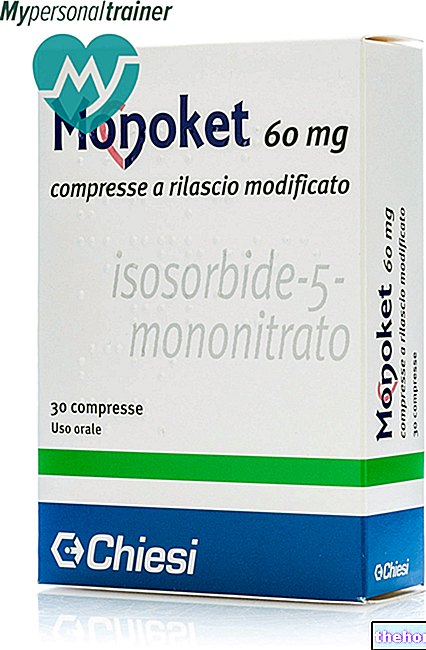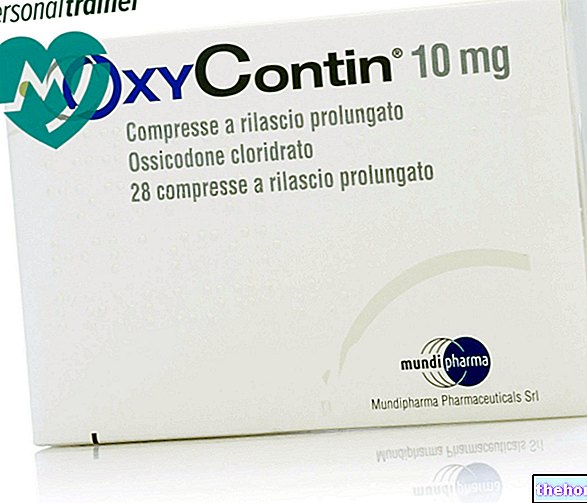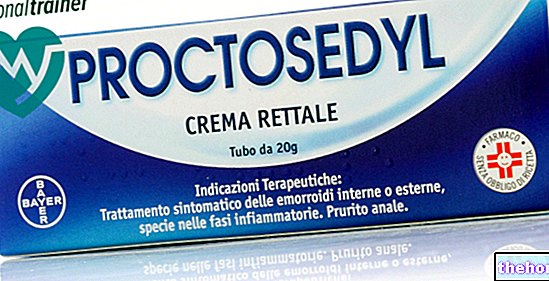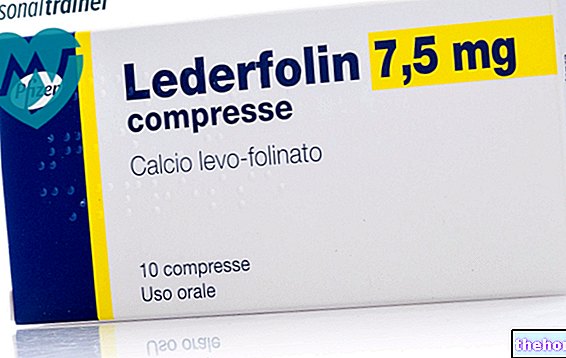Active ingredients: N-Acetylcysteine
FLUIMUCIL MUCOLITICO 100 mg granules for oral solution
The package inserts of Fluimucil mucolytic are available for the packs:- FLUIMUCIL MUCOLITICO 100 mg granules for oral solution
- FLUIMUCIL MUCOLITICO 200 mg orosoluble tablets
- FLUIMUCIL MUCOLITICO 100 mg / 5 ml syrup
Why is Fluimucil mucolytic used? What is it for?
This medicine contains the active substance N-acetylcysteine, which belongs to a group of medicines called expectorants - mucolytics, used to help clear mucus from the airways.
Fluimucil Mucolytic is indicated for the treatment of respiratory diseases characterized by an increase in the production of thick and viscous mucus (thick and viscous hypersecretion).
Talk to your doctor if it does not improve or if you feel worse after 10 days.
Contraindications When Fluimucil mucolytic should not be used
Do not take Mucolytic Fluimucil
- if you are allergic to N-acetylcysteine, similar substances or any of the other ingredients of this medicine (listed in section 6);
- if the patient is a child under 2 years of age (See "Children" section);
- if you are pregnant or breast-feeding (See "Pregnancy and breast-feeding" section).
Precautions for use What you need to know before taking Fluimucil mucolytic
Talk to your doctor or pharmacist before taking Fluimucil Mucolytic.
Take this medicine with caution and always under the supervision of your doctor in the following cases:
- if you suffer from a chronic inflammatory disease of the bronchi called bronchial asthma. Stop taking the medicine if, after taking it, you feel shortness of breath (difficulty breathing) due to the onset of contraction of the bronchial muscles (bronchospasm). Consult your doctor even if these problems have occurred in the past;
- if you have or have suffered from a stomach or bowel problem called a peptic ulcer, especially if you are taking other medicines that cause stomach problems (gastric-damaging drugs) together with Fluimucil Mucolytic.
This medicine can increase the volume of bronchial mucus (bronchial secretions), especially at the beginning of treatment. Therefore, if this occurs and you cannot cough the bronchial secretions (expectoration), contact your doctor who will advise you on a method of eliminate mucus (postural drainage or bronchoaspiration).
If you smell sulfur, do not worry because this does not indicate alteration of the preparation, but is due to N-acetylcysteine.
Laboratory tests: N-acetylcysteine can interfere with some blood and urine tests (colorimetric assay for the determination of salicylates and tests for the determination of ketones). Tell your doctor that you are taking this medicine before having any tests.
Children
Fluimucil Mucolytic should not be administered to children under the age of 2 for the treatment of respiratory problems because it can obstruct the bronchi and prevent normal breathing.
Interactions Which drugs or foods can modify the mucolytic effect of Fluimucil
Tell your doctor or pharmacist if you are taking, have recently taken or might take any other medicines.
Do not take this medicine if you are taking:
- cough medicines (antitussives), because they can lead to a buildup of mucus inside the bronchi.
Take this medicine with caution and talk to your doctor if you are taking any of the following medicines:
- activated carbon, used to treat digestive disorders or to eliminate intestinal gas (meteorism), because it can reduce the effectiveness of Fluimucil Mucolitico;
- medicines used to treat infections (antibiotics) taken by mouth. Take these medicines two hours after Fluimucil Mucolitico;
- nitroglycerin, used for some heart disorders.The use of this medicine at the same time as Fluimucil Mucolytic can cause a decrease in blood pressure (hypotension) and headache (headache).
Warnings It is important to know that:
Pregnancy and breastfeeding
If you are pregnant or breast-feeding, think you may be pregnant or are planning to have a baby, ask your doctor or pharmacist for advice before taking this medicine.
If you are pregnant or breast-feeding, take this medicine only if strictly necessary and under the direct supervision of your doctor.
Driving and using machines
Fluimucil Mucolytic does not affect the ability to drive or use machines.
Fluimucil Mucolytic granules for oral solution contains sucrose and sunset yellow (E110)
This medicine contains sucrose, a type of sugar. If you have been told by your doctor that you have an intolerance to some sugars, contact your doctor before taking this medicinal product. If you have diabetes or follow low-calorie diets, keep in mind that the preparation contains sugar in a quantity corresponding to about one teaspoon per sachet. This medicine contains sunset yellow E110, a dye. It can cause allergic reactions.
Dose, Method and Time of Administration How to use Fluimucil mucolytic: Posology
Always take this medicine exactly as described in this leaflet or as directed by your doctor or pharmacist. If in doubt, consult your doctor or pharmacist.
instructions for use
Dissolve the contents of the sachet in a glass containing a little water, stirring as needed with a teaspoon. A pleasant solution is obtained that can be drunk directly from the glass or, in the case of small children, over 2 years of age, be given in teaspoons or in a bottle. The solution should be taken as soon as it is ready.
Adults
The recommended dose of Fluimucil Mucolytic granules for oral solution is 2 sachets of 100 mg, 2-3 times a day.
Use in children over 2 years of age
The recommended dose is 1 sachet of 100 mg, 2 - 4 times a day, depending on the age.
The duration of the treatment is 5 - 10 days.
Consult your doctor if the disorder occurs frequently or if you notice changes in its manifestations.
If you forget to take Mucolytic Fluimucil
Do not take a double dose to make up for a forgotten dose.
If you have any further questions on the use of this medicine, ask your doctor or pharmacist.
Overdose What to do if you have taken too much Fluimucil mucolytic
No cases of overdose have been reported.
Symptoms of an overdose can be nausea, vomiting and diarrhea.
If you have swallowed / taken too much of this medicine, notify your doctor immediately or go to the nearest hospital.
Side Effects What are the side effects of Fluimucil mucolytic
Like all medicines, this medicine can cause side effects, although not everybody gets them.
The following side effects may occur:
Uncommon (may affect up to 1 in 100 people)
- allergic reactions (hypersensitivity);
- headache (headache);
- ringing in the ear (tinnitus);
- increased heart rate (tachycardia);
- He retched;
- diarrhea;
- inflammation of the mouth (stomatitis);
- abdominal pain;
- nausea;
- skin irritations (hives, rash);
- swelling due to fluid build-up around the mouth and eyes (angioedema);
- itch;
- fever (pyrexia);
- reduced blood pressure.
Rare (may affect up to 1 in 1,000 people)
- contractions of the bronchial muscles (bronchospasm);
- difficulty in breathing (dyspnoea);
- digestive difficulties (dyspepsia).
Very rare (may affect up to 1 in 10,000 people)
- severe allergic reactions (anaphylactic shock, anaphylactic / anaphylactoid reaction);
- bleeding (haemorrhage).
Not known (frequency cannot be estimated from the available data)
- occlusion of the bronchi (bronchial obstruction);
- swelling (edema) of the face.
Talk to your doctor if you experience any of the following side effects:
- skin lesions (Stevens Johnson syndrome or Lyell syndrome). If you experience changes in the mucous membranes or skin, stop taking the medicine;
- blood problems (reduced platelet aggregation).
Reporting of side effects
If you get any side effects, talk to your doctor or pharmacist. This includes any possible side effects not listed in this leaflet. You can also report side effects directly via the national reporting system at www.agenziafarmaco.gov.it/it/responsabili. By reporting side effects you can help provide more information on the safety of this medicine.
Expiry and Retention
Keep this medicine out of the sight and reach of children.
Do not use this medicine after the expiry date which is stated on the package. The expiry date refers to the last day of that month.
Do not store above 30 ° C.
Do not throw any medicines via wastewater or household waste. Ask your pharmacist how to throw away medicines you no longer use. This will help protect the environment.
Deadline "> Other information
What Fluimucil Mucolitico contains
- The active ingredient is N-acetylcysteine: 1 sachet contains 100 mg of N-acetylcysteine.
- The other ingredients are: orange juice granules, orange flavor, saccharin, sunset yellow (E 110), sucrose.
Description of the appearance of Fluimucil Mucolitico and contents of the pack
Fluimucil Mucolytic 100 mg, granules for oral solution: box containing 30 sachets.
Source Package Leaflet: AIFA (Italian Medicines Agency). Content published in January 2016. The information present may not be up-to-date.
To have access to the most up-to-date version, it is advisable to access the AIFA (Italian Medicines Agency) website. Disclaimer and useful information.
01.0 NAME OF THE MEDICINAL PRODUCT -
MUCOLITIC FLUIMUCIL
02.0 QUALITATIVE AND QUANTITATIVE COMPOSITION -
FLUIMUCIL MUCOLITICO 200 mg, buccal tablets:
One tablet contains:
Active principle
N-acetylcysteine 200 mg.
Excipients with known effects: sorbitol, sodium, aspartame.
FLUIMUCIL MUCOLITICO 200 mg, granules for oral solution
One sachet contains:
Active principle
N-acetylcysteine 200 mg.
Excipients with known effects: sucrose, sunset yellow (E110).
FLUIMUCIL MUCOLITICO 200 mg, granules for oral solution without sugar
One sachet contains:
Active principle
N-acetylcysteine 200 mg.
Excipients with known effects: sorbitol, aspartame.
FLUIMUCIL MUCOLITICO 100 mg, granules for oral solution
One sachet contains:
Active principle
N-acetylcysteine 100 mg.
Excipients with known effects: sucrose, sunset yellow (E110).
FLUIMUCIL MUCOLITICO 100 mg, granules for oral solution without sugar
One sachet contains:
Active principle
N-acetylcysteine 100 mg.
Excipients with known effects: sorbitol, aspartame.
FLUIMUCIL MUCOLITICO 100 mg / 5 ml, syrup
A 150ml bottle contains:
Active principle
N-acetylcysteine 3,000 g
(corresponding to 100 mg / 5 ml of syrup).
Excipients with known effects: methyl parahydroxybenzoate, sodium.
A 200ml bottle contains:
Active principle
N-acetylcysteine 4,000 g
(corresponding to 100 mg / 5 ml of syrup).
Excipients with known effects: methyl parahydroxybenzoate, sodium.
For the full list of excipients, see section 6.1.
03.0 PHARMACEUTICAL FORM -
Granules for oral solution, syrup, buccal tablets.
04.0 CLINICAL INFORMATION -
04.1 Therapeutic indications -
Treatment of respiratory diseases characterized by thick and viscous hypersecretion.
04.2 Posology and method of administration -
Adults:
1 sachet of Fluimucil Mucolytic 200 mg granules for oral solution (with or without sugar) or 2 sachets of Fluimucil Mucolytic 100 mg (with or without sugar) 2-3 times a day.
Fluimucil Mucolytic 200 mg, buccal tablets: 1 tablet 2-3 times a day.
Fluimucil Mucolytic 100 mg / 5 ml, syrup: 10 ml of syrup (1 scoop), equal to 200 mg of N-acetylcysteine, 2-3 times a day.
Children over 2 years of age:
Fluimucil Mucolytic 100 mg granules for oral solution (with or without sugar): 1 sachet 2 to 4 times a day, according to age.
Fluimucil Mucolytic 100 mg / 5 ml, syrup: ½ measuring spoon of syrup (5 ml), equal to 100 mg of N-acetylcysteine, 2 to 4 times a day according to age.
The duration of therapy is from 5 to 10 days in acute forms and in chronic forms it will be continued, in the opinion of the doctor, for periods of a few months.
Method of administration
Granules for oral solution: dissolve the contents of a sachet in a glass containing a little water, mixing as needed with a teaspoon. In this way a pleasant solution is obtained which can be drunk directly from the glass or, in the case of small children, be given in teaspoons or in the baby bottle.
The solution should be taken as soon as it is ready.
Buccal tablets: keep the tablet in the oral cavity until it is completely dissolved.
Syrup: shake before use. Once opened, the syrup is valid for 15 days.
04.3 Contraindications -
Hypersensitivity to the active substance or to any of the excipients and to other closely related substances from a chemical point of view.
The drug is contraindicated in children under 2 years of age.
Generally contraindicated in pregnancy and lactation (see section 4.6).
04.4 Special warnings and appropriate precautions for use -
Patients with bronchial asthma must be closely monitored during therapy, if bronchospasm occurs, the treatment must be stopped immediately.
Mucolytics can induce bronchial obstruction in children under 2 years of age. In fact, the drainage capacity of bronchial mucus is limited in this age group, due to the physiological characteristics of the respiratory tract. They should therefore not be used in children under 2 years of age (see section 4.3).
Particular attention must be paid to the use of the medicinal product in patients suffering from peptic ulcer or with a history of peptic ulcer, especially in the case of concomitant use of other drugs with a known gastrically damaging effect.
In the case of diabetic subjects or those who follow low-calorie diets, it should be borne in mind that the preparation in sachets contains sugar. In these cases it is possible to use the sugar-free sachet packaging.
The possible presence of a sulphurous odor does not indicate any alteration of the preparation but is typical of the active ingredient contained therein.
The administration of N-acetylcysteine, especially at the beginning of the treatment, can thin the bronchial secretions and at the same time increase their volume. If the patient is unable to expectorate effectively, to avoid the retention of secretions it is necessary to resort to postural drainage and to bronchoaspiration.
Important information about some of the excipients
The syrup contains parahydroxybenzoates which can cause delayed allergic reactions and, more rarely, immediate reactions with bronchospasm and urticaria.
The buccal tablets and sugar-free granules for oral solution contain sorbitol therefore patients with rare hereditary problems of fructose intolerance should not take this medicine.
The buccal tablets and sugar-free granules for oral solution contain a source of phenylalanine which may be harmful in patients with phenylketonuria.
The 100 mg and 200 mg granules for oral solution contain sunset yellow (E110) which can cause allergic reactions.
The granules for oral solution contains sucrose therefore patients with rare hereditary problems of fructose intolerance, glucose-galactose malabsorption or sucrase isomaltase insufficiency should not take this medicine. The 200 mg granules for oral solution contains 2.2 g of sucrose per sachet while the 100 mg granules for oral solution contains 4.3 g of sucrose per sachet so it should be taken into consideration in patients with diabetes mellitus.
The tablets, the 150 ml syrup and the 200 ml syrup contain respectively 26.9, 16.6 and 17.3 mg of sodium per dose to be taken into account in the case of patients with reduced kidney function or who follow a low diet. sodium content.
04.5 Interactions with other medicinal products and other forms of interaction -
Drug-drug interaction
Drug-drug interaction studies have only been conducted in adult patients.
Antitussive drugs and N-acetylcysteine should not be taken at the same time as the reduction of the cough reflex could lead to an accumulation of bronchial secretions.
Activated carbon can reduce the effect of N-acetylcysteine.
It is advisable not to mix other drugs with Fluimucil Mucolytic solution.
The information available on the antibiotic-N-acetylcysteine interaction refers to in vitro tests, in which the two substances were mixed, which showed a decreased activity of the antibiotic. However, as a precaution, it is advisable to take antibiotics by mouth at least two hours after the administration of N-acetylcysteine. It has been shown that the simultaneous intake of nitroglycerin and N-acetylcysteine causes significant hypotension and causes dilation of the " temporal artery with possible onset of headache.
If the simultaneous administration of nitroglycerin and N-acetylcysteine is necessary, patients should be monitored for the onset of hypotension, which can also be severe, and warned about the possible onset of headache.
Drug-laboratory test interactions
N-acetylcysteine can cause interference with the colorimetric assay method for the determination of salicylates.
N-acetylcysteine can interfere with the test for the determination of ketones in urine.
04.6 Pregnancy and breastfeeding -
Even if the teratological studies conducted with Fluimucil Mucolytic on animals have not shown any teratogenic effect, however, as for other drugs, its administration during pregnancy and during the lactation period, should be carried out only in case of actual need under the direct doctor's check.
04.7 Effects on ability to drive and use machines -
There are no assumptions or evidence that the drug can change attentional skills and reaction times.
04.8 Undesirable effects -
Below is a table relating to the frequency of adverse reactions that occurred after taking N-acetylcysteine by mouth:
In very rare cases, severe skin reactions have occurred in temporal connection with the intake of N-acetylcysteine, such as Stevens-Johnson syndrome and Lyell syndrome.
Although in most cases at least one other suspected drug more likely involved in the genesis of the aforementioned mucocutaneous syndromes has been identified, in case of mucocutaneous alterations it is advisable to consult your doctor and the intake of N-acetylcysteine must be stopped immediately.
Some studies have confirmed a reduction in platelet aggregation when taking N-acetylcysteine. The clinical significance of these findings has not yet been defined.
04.9 Overdose -
No cases of overdose have been reported with respect to oral administration of N-acetylcysteine.
Healthy volunteers who took a daily dose of N-acetylcysteine of 11.6 g for three months did not show any serious adverse reactions. Doses up to 500 mg NAC / kg body weight, administered orally, were tolerated without any symptoms of intoxication.
Symptoms
Overdose can cause gastrointestinal symptoms such as nausea, vomiting and diarrhea.
Treatment
There are no specific antidotic treatments; overdose therapy is based on symptomatic treatment.
05.0 PHARMACOLOGICAL PROPERTIES -
05.1 "Pharmacodynamic properties -
Pharmacotherapeutic group: preparations for cough and colds; mucolytics.
ATC: R05CB01.
The N-acetyl-L-cysteine (NAC) active ingredient of Fluimucil Mucolytic exerts an "intense mucolytic-fluidifying action on mucous and mucopurulent secretions, depolymerizing the mucoprotein complexes and nucleic acids that give stickiness to the vitreous and purulent component of the sputum and other secrets.
Furthermore, NAC, as such, exerts a direct antioxidant action being equipped with a nucleophilic free thiol group (-SH) capable of interacting directly with the electrophilic groups of oxidizing radicals. Of particular interest is the recent demonstration that NAC protects a1-antitrypsin, an elastase inhibitor enzyme, from inactivation by hypochlorous acid (HOCl), a powerful oxidizing agent produced by the myeloperoxidase enzyme of activated phagocytes. of the molecule also allows it to easily cross cell membranes. Inside the cell, NAC is deacetylated and thus L-cysteine is made available, an essential amino acid for the synthesis of glutathione (GSH).
GSH is a highly reactive tripeptide, ubiquitously diffused in the various tissues of animal organisms, essential for maintaining functional capacity and cellular morphological integrity, as it represents the most important intracellular defense mechanism against oxidizing radicals, both exogenous and endogenous, and towards numerous cytotoxic substances.
These activities make Fluimucil Mucolytic particularly suitable for the treatment of acute and chronic diseases of the respiratory system characterized by thick and viscous mucous and mucopurulent secretions.
05.2 "Pharmacokinetic properties -
Research carried out in man with labeled acetylcysteine showed a good absorption of the drug after oral administration. In terms of radioactivity, plasma peaks are achieved at the 2nd-3rd hour. The measurements at the level of lung tissue, performed 5 hours after administration, demonstrate the presence of significant concentrations of acetylcysteine.
05.3 Preclinical safety data -
N-acetylcysteine is characterized by a particularly low toxicity. The LD50 is greater than 10 g / kg orally in both mice and rats, while intravenously it is 2.8 g / kg in rats and 4, 6 g / kg in mice. In prolonged treatments, the oral dose of 1 g / kg / day was well tolerated in rats for 12 weeks. In dogs, oral administration of 300 mg / kg / day, for duration of one year, did not cause toxic reactions.High dose treatment in pregnant rats and rabbits during the period of organogenesis did not result in the birth of subjects with malformations.
06.0 PHARMACEUTICAL INFORMATION -
06.1 Excipients -
FLUIMUCIL MUCOLITICO 200 mg buccal tablets
Anhydrous citric acid, sorbitol, mannitol, polyethylene glycol 6000, povidone, sodium bicarbonate, lemon flavor, mandarin flavor, aspartame, magnesium stearate, microcrystalline cellulose.
FLUIMUCIL MUCOLITICO 200 mg granules for oral solution without sugar
Sorbitol, aspartame, orange flavor.
FLUIMUCIL MUCOLITICO 200 mg granules for oral solution
Orange juice granules; Orange flavor; Saccharin; Sunset yellow (E 110); Sucrose
FLUIMUCIL MUCOLITICO 100 mg granules for oral solution
Orange juice granules; Orange flavor; Saccharin; Sunset yellow (E 110); Sucrose.
FLUIMUCIL MUCOLITICO 100 mg granules for oral solution without sugar
Sorbitol; Aspartame; Orange flavor.
FLUIMUCIL MUCOLITICO 100 mg / 5 ml syrup 150 ml bottle
Methyl parahydroxybenzoate, sodium benzoate, sodium edetate, sodium carboxymethylcellulose, raspberry flavor, sodium saccharinate, sodium hydroxide, purified water.
FLUIMUCIL MUCOLITICO 100 mg / 5 ml syrup 200 ml bottle
Methyl parahydroxybenzoate, sodium benzoate, sodium edetate, sodium carboxymethylcellulose, sodium cyclamate, sucralose, raspberry flavor, sodium saccharinate, sodium hydroxide, purified water.
06.2 Incompatibility "-
Not relevant.
06.3 Period of validity "-
Fluimucil Mucolitico 200 mg granules for oral solution with or without sugar, Fluimucil Mucolitico 100 mg granules for oral solution with or without sugar, Fluimucil Mucolitico 200 mg buccal tablets: 3 years.
Fluimucil mucolytic 100 mg / 5 ml syrup: 2 years.
Once opened and kept at normal environmental conditions, the syrup is valid for 15 days.
06.4 Special precautions for storage -
Sachets of 100 and 200 mg granules for oral solution, 200 mg granules for oral solution without sugar and 200 mg buccal tablets: store at a temperature not exceeding 30 ° C.
06.5 Nature of the immediate packaging and contents of the package -
Fluimucil Mucolytic 200 mg, buccal tablets: blister of 2 tablets
Box of 20 or 30 tablets
Fluimucil Mucolytic 200 mg, granules for oral solution without sugar: paper-aluminum-polythene bags.
Box of 30 sachets
Fluimucil Mucolytic 200 mg, granules for oral solution: paper-aluminum-polythene bags.
Box of 30 sachets
Fluimucil Mucolytic 100 mg, granules for oral solution with or without sugar: paper-aluminum-polythene bags.
Box of 30 sachets
Fluimucil Mucolytic 100 mg / 5 ml, syrup: glass bottle containing 150 ml or 200 ml of syrup.
Box of 1 bottle supplied with measuring cup
06.6 Instructions for use and handling -
No special instructions.
07.0 HOLDER OF THE "MARKETING AUTHORIZATION" -
ZAMBON ITALIA s.r.l. - Via Lillo del Duca, 10 - 20091 Bresso (MI)
08.0 MARKETING AUTHORIZATION NUMBER -
Fluimucil Mucolytic 200 mg, buccal tablets - 20 tablets AIC n. 034936120
Fluimucil Mucolytic 200 mg, buccal tablets - 30 tablets AIC n. 034936094
Fluimucil Mucolytic 200 mg, granules for oral solution without sugar - 30 sachets AIC n. 034936106
Fluimucil Mucolytic 200 mg, granules for oral solution - 30 sachets AIC n. 034936031
Fluimucil Mucolytic 100 mg, granules for oral solution - 30 sachets AIC n. 034936017
Fluimucil Mucolytic 100 mg, granules for oral solution without sugar - 30 sachets AIC n. 034936043
Fluimucil Mucolytic 100 mg / 5 ml, syrup - 150 ml bottle AIC n. 034936082
Fluimucil Mucolytic 100 mg / 5 ml, syrup - 200 ml bottle AIC n. 034936118
09.0 DATE OF FIRST AUTHORIZATION OR RENEWAL OF THE AUTHORIZATION -
Fluimucil Mucolytic 200 mg, 20 buccal tablets
First authorization: 23 October 2009
Renewal: 1 June 2010
Fluimucil Mucolytic 200 mg, 30 buccal tablets
First authorization: April 19, 2001
Renewal: 1 June 2010
Fluimucil Mucolytic 200 mg, granules for oral solution without sugar
First authorization: 19 September 1995
Renewal: 1 June 2010
Fluimucil Mucolytic 200 mg, granules for oral solution
First authorization: July 1980
Renewal: 1 June 2010
Fluimucil Mucolytic 100 mg granules for oral solution
First authorization: June 1973
Renewal: 1 June 2010
Fluimucil Mucolytic 100 mg, granules for oral solution without sugar
First authorization: February 12, 2002
Renewal: 1 June 2010
Fluimucil Mucolytic 100 mg / 5 ml, syrup
Bottle 150 ml
First authorization: 15 July 1996
Renewal: 1 June 2010
200 ml bottle
First authorization: 1 September 2009
Renewal: 1 June 2010
10.0 DATE OF REVISION OF THE TEXT -
12 April 2016




























